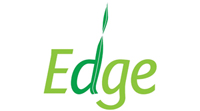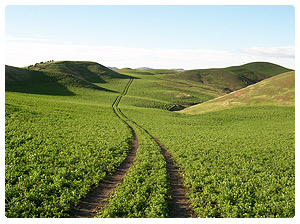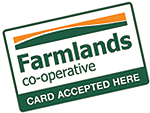 |
|
|
|
Issue 77 / Winter / August 2016
Hi [firstname]
 Welcome to the August 2016 SeedData newsletter.
Welcome to the August 2016 SeedData newsletter.
This winter appears to have been a winter of two halves.
It started out very mild, dry and pleasant, with the second half kicking off with a storm that is still causing issues for people in the central North Island.
It never ceases to amaze me how snow in New Zealand can be so destructive. I recently spent 10 days in Asia on business, so I for one am feeling the cold!
I am however, a great believer in having our seasons when they are due, so to see the rain and snow followed by frosts isn't a bad thing ...kills a few bugs!
In this issue we will look at some new endophytes, talk about a good tall fescue option and talk about some cheaper seed blends we have available as well as a quick look at seed supply for the coming season.
Please browse these topics below:

New Endophytes improving their hosts performance
For many of our clients when we mention the company DLF Seeds they associate them with the importation of several leading fodder beet seed cultivars.
However what many are unaware of is the fact that DLF have, for several years now, a full blown plant breeding and selection program in New Zealand that has a focus on pastoral species.
To complement this extensive investment they have they also invested both time and resources into breeding new novel endophytes. The fruits of this research investment are now starting to bear fruit.
The new endophytes DLF Seeds have to recently hit the market are Edge, Happe and Protek:
- Edge endophyte
 Edge is a novel endophyte discovered in ryegrass and inoculated into several ryegrass cultivars.
Edge is a novel endophyte discovered in ryegrass and inoculated into several ryegrass cultivars.
It has been tested and proven by independent scientists to provide tolerance to black beetle and Argentine stem weevil (ASW), as well as root aphid and pasture mealy bug.
This means that ryegrass cultivars with Edge have good insect tolerance and persistence throughout the country, including the northern North Island.
Edge has also been tested by independent scientists to confirm that it does not cause ryegrass staggers and does not affect animal performance.
At this stage Edge is available in 24 Seven perennial ryegrass as well Jeta hybrid ryegrass.
- Happe endophyte
 Happe is a breakthrough technology that many farmers will benefit from.
It was discovered in a meadow fescue plant and successfully transferred by DLF scientists into ryegrass plants.
Happe is a breakthrough technology that many farmers will benefit from.
It was discovered in a meadow fescue plant and successfully transferred by DLF scientists into ryegrass plants.
Happe produces substances called lolines, which have a powerful effect on many insects.
Independent research has proved that Happe provides tolerance to the same insects as Edge, but also to porina.
Happe has been tested by independent scientists to confirm that it does not cause ryegrass staggers and does not affect animal performance.
Happe has been tested throughout the country with great success.
One of the trials highlighted the advantage of Happe, when it improved production by an average of 21% in five different cultivars from December to May.
Happe is currently available in 24 seven and Ansa perennial ryegrasses.
- Protek Endophyte
 Protek endophyte is a novel tall fescue endophyte that does not produce any animal toxins, and has been tested by independent scientists to confirm it has no effect on animals.
Protek endophyte is a novel tall fescue endophyte that does not produce any animal toxins, and has been tested by independent scientists to confirm it has no effect on animals.
Protek produces lolines, which have a strong effect on many insect species. The lolines are present in both plant material above ground and in roots.
Insects that Protek works against include, Grass grub, Black beetle, Porina, Argentine stem weevil, Root aphid and Pasture mealy bug.
If you have any questions or would like more information, please click on the links below or contact Specialty Seeds.
Download Link: Edge Endophyte information sheet
Download Link: Protek Endophyte information sheet
Download Link: Happe Endophyte information sheet
Website Link: Check out the Specialty Seeds Endophyte options website page.
Contact Link: Contact Specialty Seeds if you have any other questions.
Back to top
 New Tall fescue impresses - Tower Protek.
New Tall fescue impresses - Tower Protek.
The use of tall fescues goes way back to when farmers were looking for cultivars that would perform during the year and persist through periods of droughts that New Zealand experienced in the late 80s.
Over the years there has been a significant improvement in the performance of tall fescues and Tower is one cultivar that is performing very well in todays market.
Tower with Protek endophyte (see article above) is a late flowering type (+28 days) which improves its quality and production right through into the very late spring.
Tower has soft leaves a trait that improves its palatability, which makes it easier to control over the spring months, typically a difficult period to control most tall fescues.
Other desirable traits that Tower has are its low growing point and dense spreading growth habit both these traits lead to improving its persistence and palatability.
Our clients that have used Tower to date are happy with its all-round performance. Specialty Seeds are are happy to recommend it, as we believe Tower is starting to bridge the gap between tall fescues and perennial ryegrasses without some of the limitations that perennial ryegrasses have.
Tower is well suited for all stock types and once well-established is less likely to be subject to pugging damage particularly on wetter soil types than perennial ryegrasses.
Tower with Protek also gives it very good insect protection for more information on Tower.
Contact Link: Contact Specialty Seeds if you have any questions or would like to make an order.
Back to top
 Pasture seed options and Seed Supply.
Pasture seed options and Seed Supply.

There is no need to dwell on the fact that sheep, beef or dairy farmers are facing challenging times currently.
Most of our clients are putting all farm expenses, including seed purchases, under the microscope, and we have had many enquiries into cheaper seed blends for the coming spring season.
We have of course sat up and taken notice of what our clients are saying to us. Over the last winter we have spent a lot of time looking into what is the best deal for our clients.
In the back of our minds is the fact that improved production of new cultivars will soon wipe out any savings made in the seed supplied.
Having said that, we are very happy to say we can supply high quality and productive pasture mixes for every budget for the coming Spring season.
If you are planning on renovating pasture please feel free to talk to us about the options we have available that will suit both your production and budget aspirations for any enquiry you may have please contact Specialty Seeds.
Seed Supply
Talking to the various companies this season it appears that seed supply is going to be pretty good for the coming Spring season. In saying that, the usual suspects stick their head up:
- Fodder Beet: At this stage we are hopeful supply won't be as bad as other years but in saying that seed supply is normally tight with most fodder beet types.
- Bareno Brome: Over the last few years we have sold a quite a bit of Bareno brome during the spring however its only available ex the 2017 harvest, we would be happy to talk to you about a suitable alternative.
Outside of that, pasture cultivars, brassica cultivars and whole crop cultivars are in good supply.
Contact Link: Contact Specialty Seeds if you have any seed enquiries or questions.
Back to top


As always, we hope this issue has been of some value to you. If you have a comment on this newsletter or anything on our website, please give us a call on our Freephone: 0800 727 8873, send us an email at: mail@specseed.co.nz.
Kind Regards

Stephen Finch & David Percival
Specialty Seeds - New Zealand
|
|
|
|
 |
|
|

|
If you are having trouble viewing this email, .
If you would like to be removed from this newsletter please click here to
|
